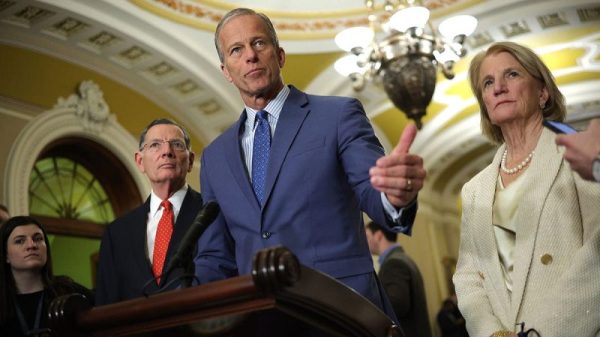The Impact of Cryptocurrency on the Indian Economy
Cryptocurrency refers to a digital or virtual medium of exchange that employs cryptographic techniques to facilitate secure financial transactions. At its core, cryptocurrency operates on a technology known as blockchain. Blockchain serves as a decentralised ledger, ensuring that transactions are transparent, immutable, and decentralised. This technology is pivotal in maintaining the integrity and security of cryptocurrency transactions.
The Rapid Growth of ICT and Cryptocurrency
The swift advancement of Information and Communication Technologies (ICT) has significantly transformed daily activities, driving the adoption of virtual transactions. This digital shift has provided a fertile ground for the growth of cryptocurrencies. India, in particular, has emerged as one of the fastest-growing cryptocurrency markets. The increasing internet penetration and the tech-savvy population have catalysed this growth, positioning India as a key player in the global cryptocurrency landscape.
The Potential Cryptocurrency Impact on Indian Economy
Cryptocurrencies offer several financial advantages that could revolutionise various economic sectors. Cryptocurrencies facilitate more efficient cross-border payments, remittances, foreign trade, and peer-to-peer financing by reducing processing and transaction costs. These benefits make cryptocurrencies an attractive alternative to traditional financial systems, especially in developing economies.
Concerns Surrounding Cryptocurrencies
Despite their potential benefits, cryptocurrencies also raise significant concerns for governments and regulators. The decentralised nature of cryptocurrency transactions poses a challenge for authorities in monitoring and regulating these activities. Additionally, the rise of cryptocurrencies could threaten traditional banking systems by providing an alternative means of financial transactions.
Security issues are another major concern. Cryptocurrencies have become a common platform for hackers, facilitating illicit activities such as terror financing, drug transactions, and money laundering. The speculative nature of the cryptocurrency market also introduces significant risks, as demand and supply dynamics affect prices, leading to high volatility. Furthermore, the unclear tax implications of cryptocurrency gains add to the complexity, creating a need for clearer regulatory guidelines.
Government Actions and Regulatory Measures
The Indian government has taken several steps to address the challenges posed by cryptocurrencies. In 2017, the Reserve Bank of India (RBI) issued a warning stating that digital currencies are not recognised as legal tender in India. By 2019, the RBI had announced that engaging in activities such as mining, trading, holding, or transferring cryptocurrencies could lead to severe penalties, including imprisonment for up to ten years.
However, in 2020, the Supreme Court of India overturned the RBI’s ban on cryptocurrencies, allowing their use once again. The Union Budget 2022-23 introduced a 30% tax on cryptocurrency transfers and imposed taxes on gifts received as virtual assets. Despite these measures, the RBI has continued to express concerns about the destabilising effects of cryptocurrencies on the monetary and fiscal stability of the country, recommending a complete ban on their use.
Economic Impact of Cryptocurrency on Indian Economy
The increasing use of cryptocurrencies has the potential to disrupt traditional financial systems, affecting liquidity, interest rates, and other financial markers. As cryptocurrencies gain popularity, they could significantly change how people conduct financial transactions, potentially impacting the broader economy.
Political Dynamics Effect of Cryptocurrency on the Indian Economy
In India, cryptocurrencies have not emerged as a significant issue in political elections. The upcoming 2024 elections are unlikely to bring about substantial changes in cryptocurrency policy, indicating that the current approach of cautious regulation will likely continue.
Benefits of Cryptocurrency
Despite the concerns, the Indian Economy Review 2024 suggests many benefits. They provide inherent security through the use of pseudonyms and ledger systems that conceal identities, ensuring transaction anonymity. Transaction costs are also significantly lower compared to traditional financial systems.
Furthermore, cryptocurrencies operate outside the conventional banking systems, offering a degree of financial freedom and lower entry barriers, making them accessible to a broader population. Cryptocurrencies also enjoy universal recognition, with many being accepted globally.
Limitations in the Indian Context
In India, the reliability and security of cryptocurrencies remain a significant concern due to their association with illicit activities. The speculative and risky nature of the cryptocurrency market adds to the hesitation, as prices can be highly volatile. The unclear taxability of cryptocurrency gains further complicates matters, requiring more defined regulatory frameworks. Additionally, the lack of a regulatory body increases the risk of fraud and undermines investor protection. The stringent Know Your Customer (KYC) norms also contribute to delays and challenges in the cryptocurrency market.
Future Outlook
The Indian government’s approach to cryptocurrency regulation remains cautious and undefined. The lack of decisive action continues to leave the future of cryptocurrency regulation in a state of uncertainty. As the global markets evolve, the impact of cryptocurrency on the Indian economy will be crucial for the country’s financial flow. Addressing security concerns while harnessing the potential benefits of this innovative financial technology could greatly benefit the economic stance.
While cryptocurrencies offer promising advantages and have witnessed rapid growth, they also pose significant challenges that must be addressed through comprehensive and balanced regulatory measures. The future of cryptocurrency in India will depend on how effectively these challenges are managed and the extent to which the benefits can be realised in a secure and regulated environment.
The post The Impact of Cryptocurrency on the Indian Economy appeared first on FinanceBrokerage.






































